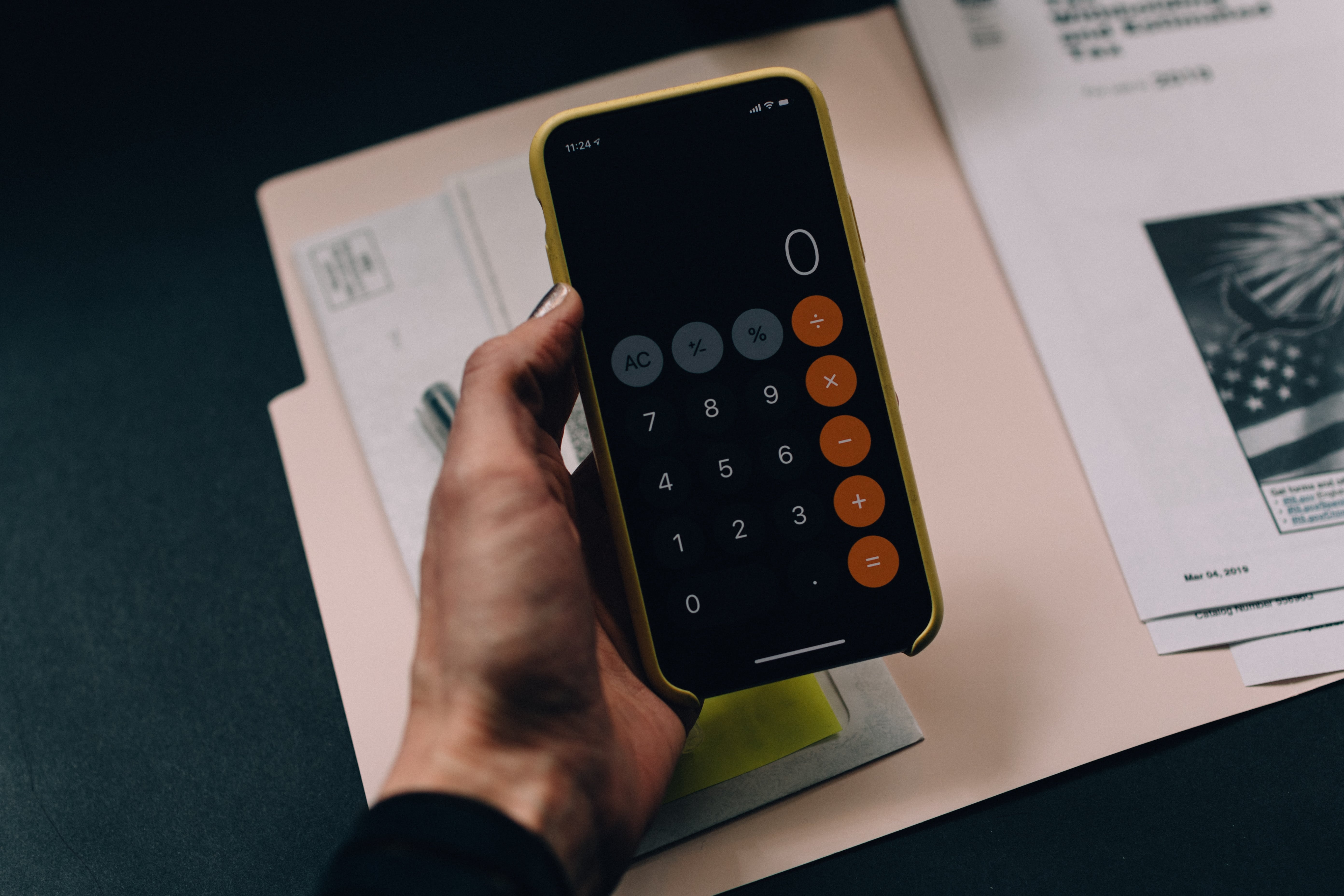Student Budget Planner: How to Save Money Being a Student
Welcome to student life! It can be an exciting and rewarding experience, but also a challenge. As a student, you need to take responsibility for yourself, including managing your money. You may feel overwhelmed, but there are ways to save money while still enjoying yourself. Budgeting is the key!
Table of Contents
- Guide to budgeting your money as a student
- Best tips to save money as a student
- Where to get help when budgeting as a student
- Conclusion
- Frequently Asked Questions
It's not a constraint, but a tool that helps you allocate your money to the things that are important to you. With a good student budget, you can save money and still have a vibrant social life.
So, what is a budget? A budget is a plan of how much money you should spend on different items and when it's best to spend it. At aparto, we have put together a guide with some tips and tricks to help you budget wisely.
Guide to budgeting your money as a student
Step 1: Figure out what you need money for
If you're like me, you have a lot of bills and expenses to pay each month. That's why it's important to understand how much money you have available for spending and what you can do with it. The best way to know this is by budgeting your money.
Now, there are a few ways to go about figuring out your monthly/weekly budget. Before you even begin to do the maths, I want you to ask yourself a very few very important questions:
- How much money do you need to pay for rent/bills?
- How much money do you need to pay for groceries?
- How much money do you need to pay for your tuition?
- How much money do you need to pay for your textbooks/university materials?
- How much money do you need to set aside for further key expenses, such as transport?
Answering these key questions will ensure that you have all your base expenses covered. Now, you can dive deeper.

Step 2: Figure out where your money is going each month
Some of us may not know how much we spend each month on groceries, clothing and other expenses. The first step to saving money as a student is figuring out where your money is going each month. This will help you get a better idea of how much money is being spent and what you can cut out to save more.
To do this, you need to keep an eye on two things: your Incomings and your Outgoings. Your incomings should always be higher than your outgoings.
Incomings are the money you get.
Outgoings are the things you spend money on.
Incomings
As a student, this may be from your parents or your part-time job. This includes any income; regardless of its source, incomings include any sort of cash flow coming your way.
Outgoings
They include things such as rent, food, bills, transport, and that Friday night pint at the pub. Any kind of cash flowing out of your account is an outgoing expense.
So, how do you figure out where your money goes? It’s time to track your expenses and see where you're spending the most.
You can start by simply adding up all of the money you spend on food, transportation, etc. each month.
Next, consider tracking other categories that might be less obvious but still add up over time:
- Mobile phone plan
- Gym membership fees
- Subscriptions: Netflix, Amazon Prime, Spotify…
- Hobbies and entertainment: cinema, clubs and other activities
- Eating and drinking out
- Holidays
… and the list goes on!

No one expects you to stop and write down exactly where you spend money, every time you spend anything.
This would be too overwhelming in a student’s life. We are constantly on the run and already have a million things to think about.
An easy way to keep track of incomings and outgoings is by using banking apps. Since Covid-19, most banks in the world have moved their services online. This means that you have access to your bank account 24/7, all from your phone!

If you want to make a weekly budget, then take a little time at the end of each week to open that app, and make a note of where your money ended up.
Read: Packing for University: Ultimate Guide
Step 3: Figure out what you can cut from your budget
All that being said, when you open your banking app at the end of the week, you might notice at least a few unnecessary expenditures. Well, this step might be a little unpleasant: it’s time to cut out those outgoings.
We all know that when you're in school, it can be tempting to spend money on things that don't matter much when compared with the cost of tuition and living expenses. But if you want to save money, these types of purchases need to be eliminated from your budget first.
For instance, you can cut out some unnecessary luxuries. If there's an item or service that's not necessary for your daily life but still makes spending feel good (and therefore gets purchased), think about whether that could be replaced by something cheaper or free.
You can also cut out a few entertainment expenses: movie tickets, concerts/shows etc., parties at friends' houses etc., going out dancing etc., and watching TV shows together as a family—these are all things that add up quickly!

Even if it is only that monthly streaming service bill; it all adds up in the end. So come up with some creative solutions! For instance, share these costs among all the users of the platforms. If you and your roommates all have accounts across the platforms, share the burden, and have one account each that all the others can use.
Coming up with these little cost-cutting solutions will go a very long way in helping you budget as a student.
Step 4: Calculate how much you need to save each month
Once you know how much money you need per month, it's time to save up those funds. Saving up money is one of the most important things that a student can do. You want to put away as much as possible because when you graduate and don't have a job or an income source, this will be like a rainy day fund.
To calculate how much you need to save each month, first take into account the cost of living in your area. This will vary depending on where you live and what type of student you are.

For example, if you are living in Dublin, let's say that rent is €1,000 per month with utilities included; food costs about €5 per meal per day; transportation costs around €20 per week or less depending on how far away from the university you live. These would make up your basic costs – you should set aside the money for these as soon as you can.
Then, you can take into account extra entertainment costs – such as going out, cinema, concerts, etc – which may range from €100/month to €500/month or even more, depending on your incomings.
Once we know how much we need to save each month based on our current student lifestyle choices, then we can start looking at ways how those funds could be used wisely. When the semester ends later down the line there won't be any surprises left behind.
Step 5: Find some tools to help you with budgeting
This all sounds like a lot, we know. But remember, you don’t have to do it all on your own! There are infinite resources out there to help you in your student budgeting journey. Let us introduce you to a few online budget planner tools.
Budget Calculators
These tools can be a lifesaver when it comes to staying on track with your spending, but they are also helpful for gaining insight into how much money you should have in each category of your budget.
A good budget calculator will help you figure out what portion of income goes towards rent, utilities and food expenses as well as discretionary spending such as going out with friends or buying books for university.

Some programs even let users add their expenses like student loans or textbooks so that they know exactly where their money goes!
Monefy is the tool you need for finance organisation. Ucas also a good tool to give you an idea of the money you will spend according to the university you are going to (UK only).
Popular bank apps like Natwest, HSBC, Santander or Lloyds Bank have their own budget calculators to help you manage your money.
Budget trackers
A budget tracker is a tool that helps you track your spending and evaluate how much money you are spending on things like rent, food and utilities.
The idea behind this is to show you if your income is sufficient enough to cover all of these expenses without it becoming difficult for you to pay them off in time.
Using a budget tracker can be helpful because it allows you to see what exactly is being spent on each item for them not only be able to make sure they have enough money left over after paying bills but also so they aren't going over their limit by mistake during the month where there might not be much left over at all!

Wally or Goodbudget are some of the most popular budget apps that will let you do just that.
Budget trackers also allow you to set up alerts so you're notified when certain expenses come up, or if there's been any change in the amount of money allotted for a particular category.
Step 6: Stick to your budget
It is one thing to make the plans, it’s a whole other thing to be able to stick to them!

When it comes to budgeting, it is important to set goals: that is what you did in the last few steps. However, more often than not, it is easier to set the plan than to go through with it.
If you're someone who prefers setting large-scale goals but lacks patience for the process (or feels overwhelmed by all the steps involved), then breaking things down into smaller chunks may be better suited for your needs.
On the other hand, if having an over-the-top vision of what could happen someday motivates you more than anything else does--and if it drives home why achieving this thing matters so much--then maybe aiming high is exactly what needs done!
Either way works great; just make sure whatever path is chosen matches up with your strengths and weaknesses when deciding how big or small each step should be based on those factors alone.
Best tips to save money as a student
There are always things you can do to save money as a student. Here are our 15 top tips to save money:

- Find student accommodation according to your budget. At aparto, we have several room types to help you do just that!
- Make a budget and stick to it
- Take advantage of student discounts
- Limit eating out and cook at home
- Buy textbooks used or rent textbooks online
- Buy generic brands and avoid brand names
- Limit online shopping and impulse buying
- Look for free or discounted activities around town
- Make coffee at home instead of buying it
- Make use of public transportation for long distances
- Buy in bulk when it makes sense
- Take advantage of free Wi-Fi whenever possible
- Use coupons and look for deals
- Try to get a job to earn extra money
- Avoid high-interest credit cards and only use them if necessary
Read: How to be a Happier Student
Where to get help when budgeting as a student
Whether you are looking for budgeting tips, or are finding it hard to meet your budgeting goals, you can seek advice from:
- Your parents or a family member
- Your bank can help you manage your money
- Universities provide student support (be it financial or well-being support, and you can also check if you’re eligible for a scholarship or an award)
It's important to remember that budgeting as a student can be challenging. Any knowledge, skills or experience you can gain will help you control your budget and achieve your financial goals.
Conclusion
Budgeting is a way for students to plan for the future by tracking cash flow, saving money, and paying off debts. It involves figuring out key expenses, being creative with finances, and finding tools such as budget calculators and trackers.
Lastly, remember to stick to the budget and seek help if needed.
At aparto, we have different room types to suit different budgets. Visit our student accommodation now!
Frequently Asked Questions
Q: What are some ways students can save money?
A: Students can save money by creating a budget, cutting unnecessary expenses, taking advantage of student discounts or using public transportation.
Q: How can students create a budget?
A: Students can create a budget by tracking their income and expenses, identifying their fixed and variable expenses, prioritising their expenses and adjusting their budget as needed.
Q: What common expenses can students cut?
A: Students can cut expenses such as eating out, buying products from popular brands, paying for cable TV or using paid transportation.
Q: How can students take advantage of student discounts?
A: Students can take advantage of student discounts by applying for them at shops and restaurants, using student discount websites and apps, and showing their student ID.
Q: How do I track my spending?
A: This is the first step in creating a budget and keeping track of your finances. You can use budget apps like Mint or YNAB (You Need a Budget), which will help you categorise all of your purchases and see how much money is coming in, going out, and where it's going.
You can also use pen and paper or a google sheets if that's more comfortable for you! Just make sure that whatever system works best for tracking expenses is easy enough for you to use consistently so that it doesn't become overwhelming or too time-consuming to keep up with over time.
Q: How do I create a budget?
A: Start by listing everything possible that costs money--from rent/mortgage payments all the way down to subscriptions like Netflix or Disney Plus--and then figure out how much each category costs per month.
Next comes deciding whether each item needs to be included as part of this monthly expenditure plan; maybe some things like groceries don't need their own line item because they could just be lumped together under another category such as "miscellaneous."
Finally, decide whether there are any ways in which funds could be shifted around between categories without affecting their overall purpose; maybe moving some discretionary spending into savings would allow more room elsewhere without impacting the quality of life too much!
Q: How much money does a student need a month?
A: The amount of money a university student needs each month will depend on the student's circumstances, such as where they live, their lifestyle and financial commitments.

